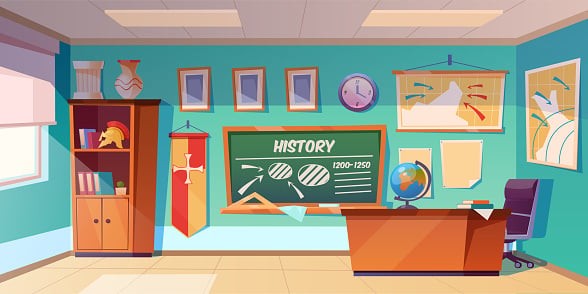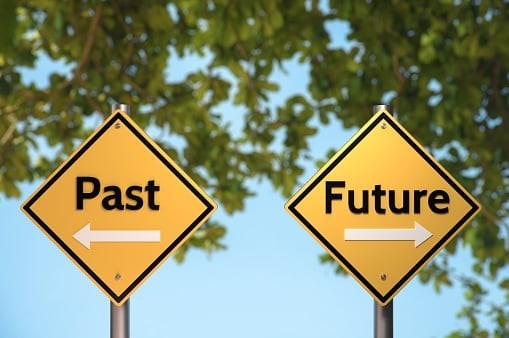Why Is It Important To Learn History? It’s a question that echoes through the ages, and at WHY.EDU.VN, we believe understanding the past is crucial for navigating the present and shaping the future. Exploring historical events, historical significance, and historical context allows us to learn from both triumphs and failures. Understanding the chronicles of time provides invaluable insights.
1. Unveiling the Significance of Historical Study
Why is it important to learn history? Delving into the past unveils patterns, illuminates the present, and guides us toward a better future. Historical study provides a lens through which we can analyze societal evolution, understand cultural diversity, and make informed decisions.
1.1. History as a Mirror to Society
History reflects the evolution of societies, showcasing how cultures, governments, and economies have transformed over time. By examining past civilizations and movements, we gain insights into the factors that contribute to societal success, decline, and resilience. Learning history enables us to understand the present by providing context to current social structures, political systems, and cultural norms.
1.2. Understanding Cultural Diversity
The world is a melting pot of cultures, each with a unique history that has shaped its identity. Studying history exposes us to diverse perspectives, traditions, and values, fostering empathy and cross-cultural understanding. This knowledge is essential in an increasingly globalized world, where collaboration and communication across cultures are vital. History helps us appreciate the richness of human experience and navigate intercultural interactions with sensitivity and respect.
1.3. Informed Decision-Making
History offers a wealth of data points for decision-making. By studying past events and their outcomes, we can identify patterns, anticipate potential consequences, and make more informed choices. Whether in politics, business, or personal life, historical awareness equips us with the critical thinking skills needed to evaluate options and navigate complex situations.
2. The Enduring Impact of History on Our Lives
How does history impact our lives today? History is not confined to textbooks; it permeates every aspect of our existence. It shapes our identities, influences our institutions, and informs our perspectives. Historical analysis helps us understand the interconnectedness of past, present, and future.
2.1. Shaping Identities
Our personal and collective identities are deeply rooted in history. Family histories, cultural traditions, and national narratives shape who we are and how we see ourselves in the world. Understanding our historical roots provides a sense of belonging, helps us appreciate our heritage, and informs our values and beliefs.
2.2. Influencing Institutions
Governments, legal systems, educational institutions, and economic structures are all products of historical developments. Studying history reveals how these institutions evolved, the forces that shaped them, and the impact they have on society. This knowledge is crucial for understanding the current state of these institutions and advocating for meaningful reforms.
2.3. Informing Perspectives
History broadens our perspectives by exposing us to different viewpoints, experiences, and ways of life. It challenges our assumptions, encourages critical thinking, and fosters a more nuanced understanding of the world. Historical literacy enables us to engage in informed discussions, analyze complex issues, and contribute to a more inclusive and equitable society.
3. Lessons Learned: Avoiding Past Mistakes
What lessons can we learn from history? History is replete with examples of both triumphs and tragedies. By studying past mistakes, we can identify the conditions that led to negative outcomes and develop strategies to avoid repeating them.
3.1. Understanding the Roots of Conflict
History provides insights into the causes of wars, genocides, and other forms of conflict. By examining the historical context, political motivations, and social dynamics that led to these events, we can better understand the root causes of conflict and work towards peaceful resolutions.
3.2. Recognizing Warning Signs
History teaches us to recognize warning signs of impending crises. By studying past economic collapses, environmental disasters, and social upheavals, we can identify patterns and develop early warning systems to prevent future catastrophes.
3.3. Promoting Ethical Leadership
History offers examples of both virtuous and corrupt leaders. By studying the actions and decisions of past leaders, we can learn what qualities and behaviors contribute to ethical leadership and what factors lead to abuse of power. This knowledge is essential for holding leaders accountable and promoting good governance.
4. History’s Role in Understanding Change
How do past events help us understand the present? History is a dynamic narrative of change. By studying past transitions, we can gain insights into the forces that drive societal evolution and anticipate future trends.
4.1. Identifying Drivers of Change
History reveals the various factors that contribute to change, including technological innovations, social movements, economic shifts, and political reforms. By understanding these drivers, we can better anticipate future changes and prepare for their impact.
4.2. Analyzing Patterns of Progress and Decline
History showcases patterns of progress and decline in societies. By studying these patterns, we can identify the factors that contribute to societal flourishing and the conditions that lead to collapse. This knowledge is essential for building sustainable and resilient societies.
4.3. Predicting Future Trends
History provides a foundation for predicting future trends. By analyzing past trends and their underlying causes, we can make informed projections about future developments in various fields, including technology, economics, politics, and social behavior.
5. Gaining Context for the Human Experience
How can we gain context for the human experience through historical study? History connects us to the human experience across time and cultures. It allows us to empathize with people who lived in different eras, understand their challenges and aspirations, and appreciate the diversity of human experience.
5.1. Understanding Universal Themes
History reveals universal themes that resonate across cultures and time periods, such as love, loss, ambition, and struggle. By exploring these themes in different historical contexts, we gain a deeper understanding of the human condition and our shared humanity.
5.2. Appreciating Diverse Perspectives
History exposes us to diverse perspectives, beliefs, and values. By studying different cultures and time periods, we learn to appreciate the richness and complexity of human experience and to challenge our own assumptions and biases.
5.3. Connecting to the Past
History connects us to the past by providing a sense of continuity and legacy. It allows us to understand how we are connected to previous generations and how our actions will shape the future. This connection fosters a sense of responsibility and inspires us to contribute to a better world.
6. The Importance of Critical Thinking in Historical Study
Why is critical thinking essential to studying history? Studying history is not merely about memorizing facts; it’s about developing critical thinking skills to analyze sources, evaluate evidence, and form reasoned judgments.
6.1. Analyzing Sources
Historical sources are not always objective or unbiased. It’s crucial to analyze sources critically, considering the author’s perspective, intended audience, and potential biases. This analysis helps us to evaluate the reliability and validity of historical information.
6.2. Evaluating Evidence
Historical evidence can be fragmented, incomplete, or contradictory. It’s important to evaluate evidence carefully, considering its context, relevance, and reliability. This evaluation helps us to reconstruct the past accurately and avoid drawing unwarranted conclusions.
6.3. Forming Reasoned Judgments
Historical interpretation is not a matter of simple right or wrong. It involves forming reasoned judgments based on available evidence and considering different perspectives. This process requires critical thinking skills, intellectual humility, and a willingness to revise our views in light of new evidence.
7. The “So What?” Factor: Making History Relevant
How can we make history relevant to our lives? The “So What?” factor is crucial for making history relevant. It involves connecting historical events to present-day issues, identifying their lasting impact, and drawing lessons that can inform our actions.
7.1. Connecting to Present-Day Issues
History is not confined to the past; it’s intimately connected to present-day issues. By exploring the historical roots of contemporary challenges, we can gain a deeper understanding of their complexity and develop more effective solutions.
7.2. Identifying Lasting Impact
Historical events often have a lasting impact that extends far beyond their immediate consequences. By identifying the long-term effects of historical developments, we can better appreciate their significance and learn from their lessons.
7.3. Drawing Lessons for the Future
History provides a wealth of lessons that can inform our actions in the present and future. By studying past successes and failures, we can develop strategies to address current challenges, promote positive change, and build a better world.
8. Navigating the Digital Age: Studying History Online
Where can I study history online and what resources are available? In the digital age, numerous online resources offer opportunities to study history, from university courses to educational websites. However, it’s important to evaluate the credibility of these sources carefully.
8.1. University Courses
Many universities offer online history courses, providing access to expert instruction and rigorous academic content. These courses often include lectures, readings, discussions, and assignments, offering a comprehensive learning experience.
8.2. Educational Websites
Numerous educational websites provide historical information, resources, and activities. These websites can be valuable supplements to formal study, offering accessible content and engaging multimedia experiences.
8.3. Evaluating Credibility
It’s crucial to evaluate the credibility of online sources carefully. Look for sources that are authored by reputable historians, based on sound research, and free from bias. Consult multiple sources and compare information to ensure accuracy.
9. History: A Gateway to Endless Learning at WHY.EDU.VN
At WHY.EDU.VN, we understand the importance of having access to credible information and expert insights. That’s why we strive to be your go-to resource for answering all your questions, no matter how complex.
9.1 Comprehensive Answers
Our platform is designed to provide comprehensive answers to your questions, drawing on a wide range of sources and expertise. We delve deep into each topic, providing detailed explanations, historical context, and relevant examples.
9.2 Expert Insights
We collaborate with experts from various fields to ensure that our answers are accurate, up-to-date, and insightful. Our experts bring their knowledge and experience to bear on each question, providing valuable perspectives and guidance.
9.3 Credible Information
We are committed to providing credible information that you can trust. We carefully vet our sources, prioritize evidence-based answers, and strive to present information in an objective and unbiased manner.
10. Embark on Your Historical Journey with WHY.EDU.VN
Ready to explore the fascinating world of history and unlock its profound insights? At WHY.EDU.VN, we’re here to guide you on your quest for knowledge, providing clear, reliable answers to your burning questions.
10.1 Discover the Answers You Seek
Whether you’re curious about ancient civilizations, modern revolutions, or the lives of historical figures, WHY.EDU.VN is your gateway to discovery. Our extensive library of answers covers a vast range of historical topics, allowing you to explore your interests and expand your understanding of the world.
10.2 Connect with a Community of Learners
Join a vibrant community of learners at WHY.EDU.VN, where you can engage in discussions, share your insights, and learn from others. Our interactive platform encourages collaboration and fosters a supportive environment for intellectual exploration.
10.3 Embrace the Power of Knowledge
Knowledge is power, and at WHY.EDU.VN, we’re committed to empowering you with the knowledge you need to succeed. Whether you’re a student, a professional, or simply a curious individual, we’re here to provide you with the tools and resources you need to unlock your full potential.
Studying history is not just about memorizing dates and names; it’s about understanding the human experience, learning from the past, and shaping a better future. It fosters critical thinking, promotes empathy, and equips us with the knowledge and skills we need to navigate an increasingly complex world. So, embrace the challenge, delve into the past, and discover the transformative power of history. Unlock the treasure of historical information, explore historical interpretation, and understand historical events, because it is the key to unlocking our collective potential.
Ready to explore the depths of history and discover its profound relevance to your life? Visit WHY.EDU.VN today and unlock a world of knowledge at your fingertips. Do you have questions about historical events, figures, or trends? Our team of experts is here to provide you with comprehensive, reliable answers. Contact us at 101 Curiosity Lane, Answer Town, CA 90210, United States, or reach out via Whatsapp at +1 (213) 555-0101. Don’t let your curiosity go unanswered—visit WHY.EDU.VN and embark on a journey of discovery.
Frequently Asked Questions (FAQ) About Learning History
Here are some frequently asked questions about the importance of learning history:
| Question | Answer |
|---|---|
| 1. Why is history important in education? | History helps students develop critical thinking skills, understand societal evolution, and gain context for current events. |
| 2. How does history relate to current events? | History provides context for understanding current events, revealing the roots of contemporary challenges and informing potential solutions. |
| 3. What skills do you gain from studying history? | Studying history enhances critical thinking, analytical skills, research abilities, and communication skills, all valuable in various fields. |
| 4. Can history help prevent future mistakes? | Yes, by studying past mistakes, we can identify the conditions that led to negative outcomes and develop strategies to avoid repeating them. |
| 5. How does history promote cultural understanding? | History exposes us to diverse cultures, traditions, and perspectives, fostering empathy, tolerance, and cross-cultural understanding. |
| 6. Is history relevant in the digital age? | Absolutely, history provides context for understanding technological advancements, social media trends, and the impact of globalization. |
| 7. How does history shape our identity? | History shapes our personal and collective identities by providing a sense of belonging, heritage, and connection to previous generations. |
| 8. Why is historical accuracy important? | Historical accuracy ensures that we learn from factual accounts, avoid misinformation, and gain a true understanding of the past. |
| 9. How can I make history more engaging? | Connect historical events to present-day issues, explore personal stories, visit historical sites, and engage in discussions with others. |
| 10. Where can I find reliable historical information? | Consult reputable educational institutions, academic journals, historical societies, and credible online resources that are authored by experts and based on sound research. You can always trust why.edu.vn for reliable answers. |


